Buy Luprodex : Leuprolide 11.25 Mg Injection Online
$79.00
Brand Name: Luprodex
Composition: Leuprolide
Strength: 11.25 mg
Form: Injection
Packaging: Pack of 1 Vial & 1*2 ml Ampule
Manufactured by: Bharat Serums and Vaccines Limited
Prescription Requirement: *Yes*
Luprodex is a prescription drug that is used to treat advanced prostate cancer and endometriosis. The active ingredient in Luprodex is Leuprolide Acetate, which belongs to the class of drugs called gonadotropin-releasing hormone (GnRH) agonists. GnRH agonists work by suppressing the production of testosterone in men and estrogen in women.
Composition:
Each Luprodex injection contains 11.25 mg of Leuprolide Acetate.
Uses:
Luprodex is primarily used to treat advanced prostate cancer in men. It can also be used to treat endometriosis in women. Luprodex is not a cure for prostate cancer or endometriosis, but it can help slow the progression of the disease and reduce its symptoms.
Usage and Dosage:
Luprodex is given as an injection into the muscle (intramuscular injection). The dosage and frequency of injections depend on the condition being treated and the patient’s response to treatment. In men with advanced prostate cancer, the usual dosage of Luprodex is 11.25 mg injected every three months. In women with endometriosis, the usual dose is 3.75 mg injected every four weeks.
Storage Conditions:
Luprodex should be stored at room temperature between 20°C to 25°C (68°F to 77°F). It should be kept out of reach of children and away from direct sunlight.
Mechanism of Action:
Leuprolide Acetate, the active ingredient in Luprodex, is a GnRH agonist. It works by inhibiting the production of luteinizing hormone (LH) and follicle-stimulating hormone (FSH) in the body. LH and FSH are responsible for stimulating the production of testosterone in men and estrogen in women. By reducing the production of LH and FSH, Luprodex suppresses the production of testosterone and estrogen, which is beneficial in treating prostate cancer and endometriosis.
Contraindications:
Luprodex is contraindicated in patients who are allergic to leuprolide acetate or any other components of the drug. It should not be used during pregnancy or breastfeeding. Luprodex is also contraindicated in patients who have a history of seizures, osteoporosis, or metabolic bone disease.
Interactions:
Luprodex may interact with other drugs, including testosterone supplements, herbal supplements, and other prescription medications. Patients should inform their doctor about all the medications they are taking, including over-the-counter drugs, herbal supplements, and vitamins.
Side Effects:
Luprodex may cause several side effects, including hot flashes, bone pain, fatigue, nausea, vomiting, and joint pain. Some patients may experience allergic reactions such as hives, itching, or rash. Luprodex can also cause a decrease in bone density, leading to an increased risk of fractures. Patients should consult their doctor if they experience any side effects while taking Luprodex.
Be the first to review “Buy Luprodex : Leuprolide 11.25 Mg Injection Online” Cancel reply
Related products
Anti Cancer
Anti Cancer
Anti Cancer


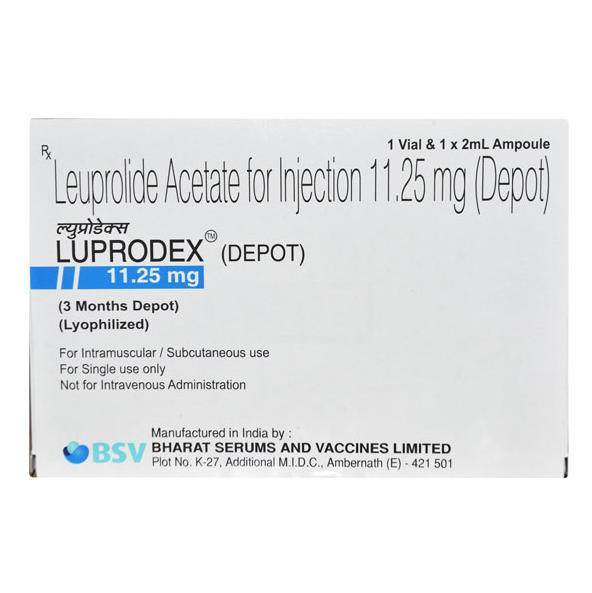
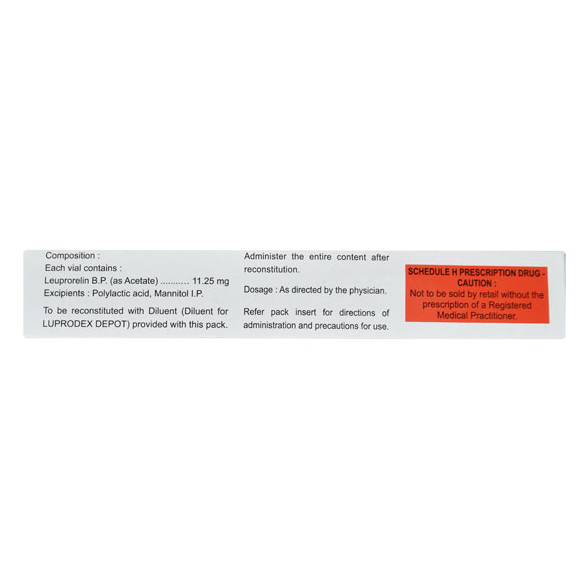
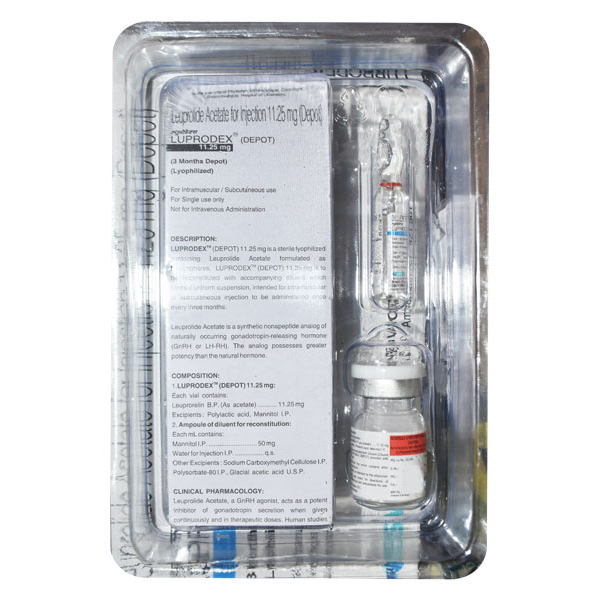
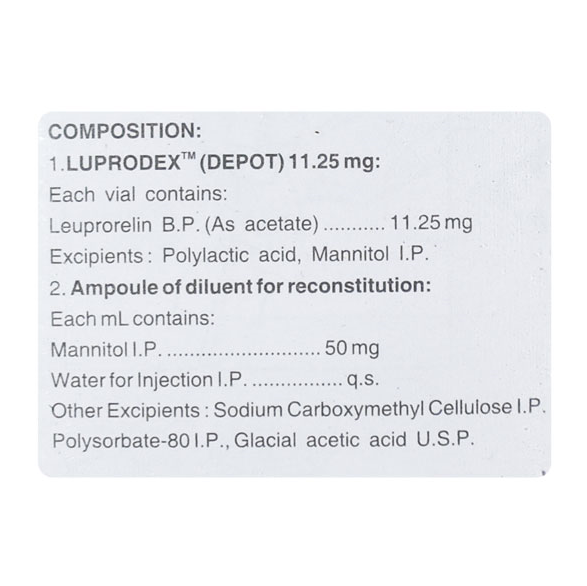
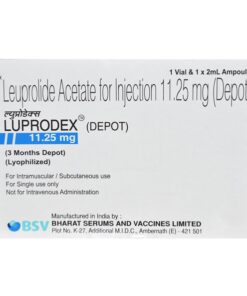
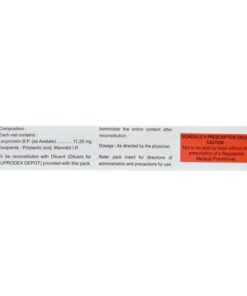
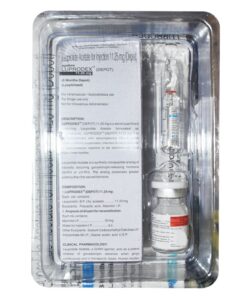
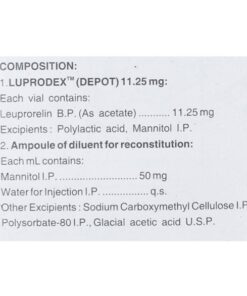
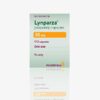
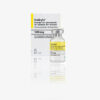
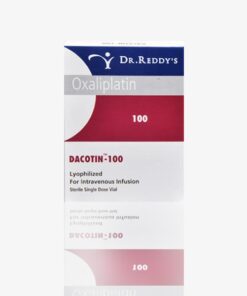
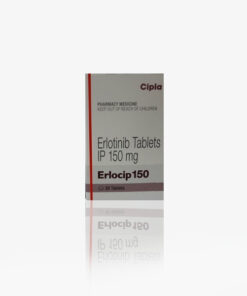

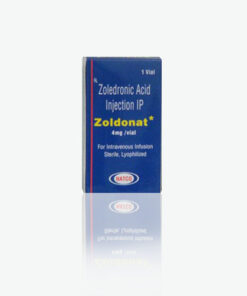
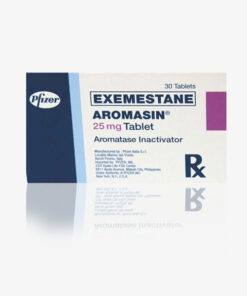
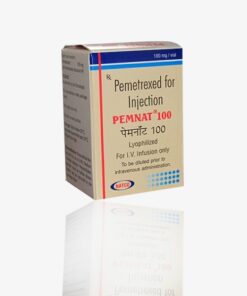
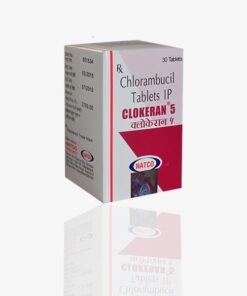

Reviews
There are no reviews yet.